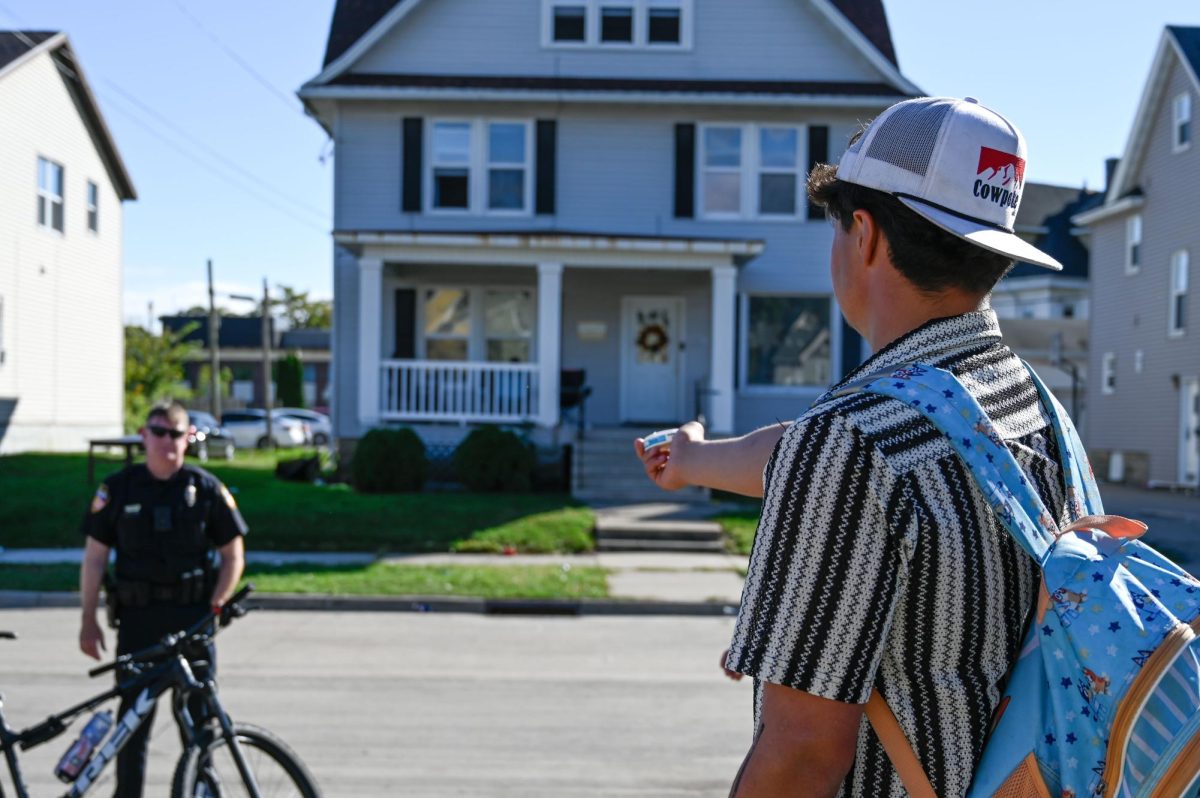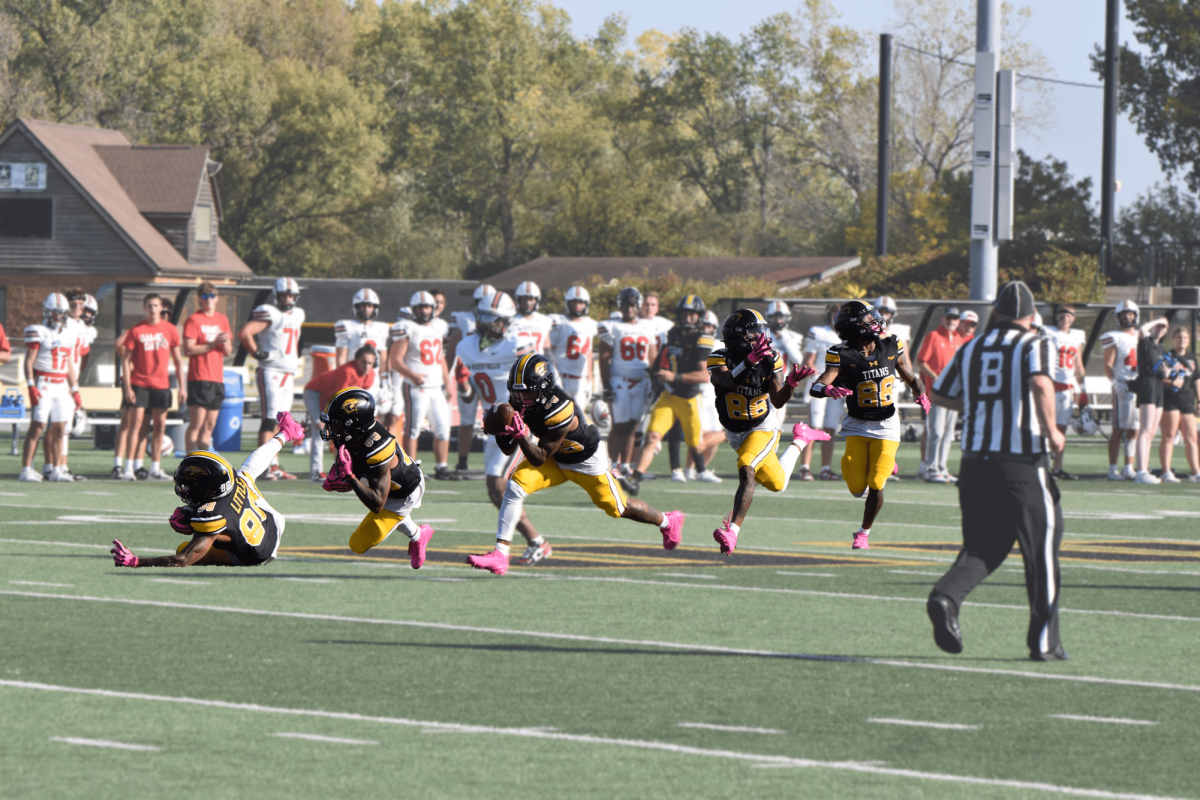University of Wisconsin Oshkosh Chancellor Andrew Leavitt said he is comfortable with how Gov. Scott Walker has laid out his budget plan for the University of Wisconsin System and the performance-based funding that comes along with it.
“We certainly know how we want to measure ourselves for public accountability,” Leavitt said. “The governor is also suggesting some ways that we can measure ourselves. I think the two will influence each other in the end.”
Leavitt said Walker has been detailed in how he wants the money from the performance-based funding spent.
“We have to analyze that to see how consistent that is with what we had planned to do to drive forward our 2020FWD plan, which is the strategic initiative for the system,” Leavitt said.
Walker announced his new budget plan on Feb. 7, which featured a 5 percent cut back on tuition in UW System schools, as well as replacing those lost tuition dollars with $35 million in state funding.
Leavitt said he had a positive impression of Walker’s new budget plan and the numbers that he is proposing within it.
“I think that the governor and the UW [System] are now on the same page as viewing higher education as a way to elevate the economic prosperity in the state,” Leavitt said. “That’s evident by the governor’s support in his budget [with] the new money.”
Leavitt said the UW System’s desire to raise tuition is not in conflict with Walker’s plan to cut tuition because of the $35 million in state funding Walker will provide.
“He is going to be backfilling, if you will, his tuition cut with state funding,” Leavitt said. “So that part is helpful.”
Alex Hummel, who is a Special Assistant for Strategic Partnerships to Leavitt, said the UW System proposed a freeze on tuition for year one of the new budget plan, and then to raise it in year two.
“Then in year two of the two year budget, I believe they asked for a [consumer price index],” Hummel said. “So they would only increase tuition based on the rate consumer price index. So it wasn’t 5 percent, it would probably be something more like 1 or 2 percent.”
According to a Milwaukee Journal Sentinel article, the budget Walker proposed adds $42.5 million performance-based funding to schools.
The metrics to receiving funding will be: how many of their students graduate, how long it takes students to finish their degrees, how many obtain jobs after graduation and how many are working in high-demand fields throughout the state, according to the article.
UWO student Nick Charles said Walker’s proposed performance-based funding is very much in-line with Walker’s beliefs, as it promotes competition.
“Whether that competition is healthy, or even beneficial, is another question,” Charles said. “Each flagship campus in the UW System definitely has one or more academic areas that they dominate in, but this sort of competition might force existing gaps to widen. I think that has the potential of causing the UW System to further deteriorate as an internationally respected institution of higher learning. ”
Leavitt said Walker put more funds on the table than the UW System originally asked for.
“We asked for the return, or the fulfillment, of the $50 million lapse, which was in the previous budget, but not funded,” Leavitt said. “Plus $42.5 million in new funding. So it appears he honored both of those, and at the same time, he’s added another $12.5 million for target initiatives that are important to the governor.”
Walker said, in his budget claim, he wants to make allocable fees an option, which fund things like student activities, intramural sports and the transit system.
Leavitt said allocable fees are about $130 of overall segregated fees, and the University has to be careful as to how it will impact the campus.
“I certainly support the notion of trying to make college more affordable,” Leavitt said. “I think we need to very carefully look at how this proposal will impact students. I think the students themselves should also have that conversation.”
Allowing students to opt-out of some of their segregated fees gives them the choice of what they want to give money towards, Walker said in a Milwaukee Journal Sentinel article.
“Allowing an opt-out helps students make the decisions on what they do and do not want to fund,” Walker said.
Charles said Walker’s plan to give students an option to opt-out is not that great of an idea.
“Many student groups already struggle to put together the funding they need because of his previous cuts,” Charles said. “Student groups losing funding will be a huge blow to the sense of community on every campus. I think it will also have a significant impact on student retention and graduation rates. There are plenty of students who want to give up on pursuing a higher education — but they don’t because of the student groups they’re involved in.”
The University has offered voluntary retirement packages according to Leavitt. 52 more individuals on campus accepted the voluntary retirement package, but there is still more work to be done, Leavitt said.
“We need to continue to reduce the size of our workforce to meet the current budget cycle we’re in,” Leavitt said. “That will help us make cuts that we need to make permanent.”
Gonzalez said she has seen the effect of professors being laid off in her own program.
“It means there’s fewer sections that can be taught and a broader topic be cut,” Gonzalez said. “I do feel like with it being cut it could maybe affect the quality of education, but I feel like the school is strong enough that hopefully it can maintain the same quality of education in the future even with cuts.”
Leavitt said he is aware there needs to be a balance between how many professors are removed and the quality of education students receive.
“We ended up replacing about 40 percent of the positions that were up that participated in this program,” Leavitt said. “That still netted us the money that we needed for the budget.”
Leavitt said the academic experience of students is first and foremost and that he keeps a close eye on it.
“We’re not going to do anything that we believe will intentionally compromise the experience of our students,” Leavitt said.
The last budget cycle was a historic moment for everyone involved, and the UW System needed to make changes, Leavitt said.
“We realized we had to do things differently,” Leavitt said. “The level of accountability that we needed to raise to was higher than in the past. Introspection, where we looked at how we did business and made significant changes to save money and keep cost under control. All of that was precipitated because of the pretty significant budget reduction in the last cycle.”
Leavitt said he thinks Walker, the state legislature and the UW System are viewed as partners now.
“I think there is a realization by our state government, as the governor and the legislature, that the UW has come a long ways in terms of its efficiency and effectiveness,” Leavitt said. “Certainly the new money from the governor signals to me that the governor sees the UW system as a partner in propelling or elevating the economic prosperity in this state.”













